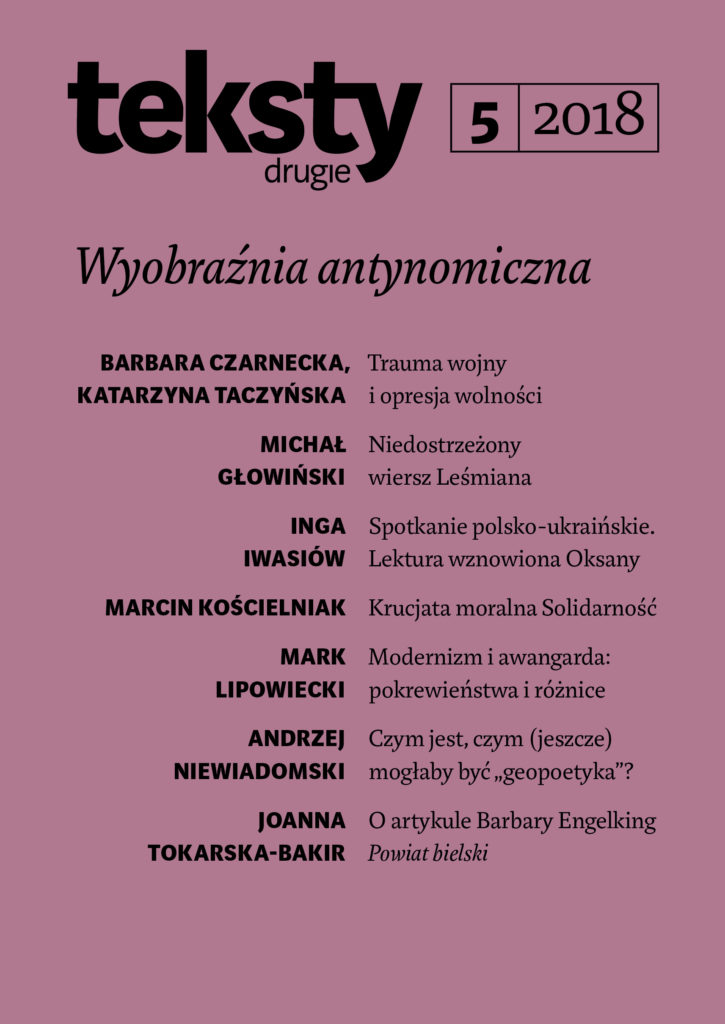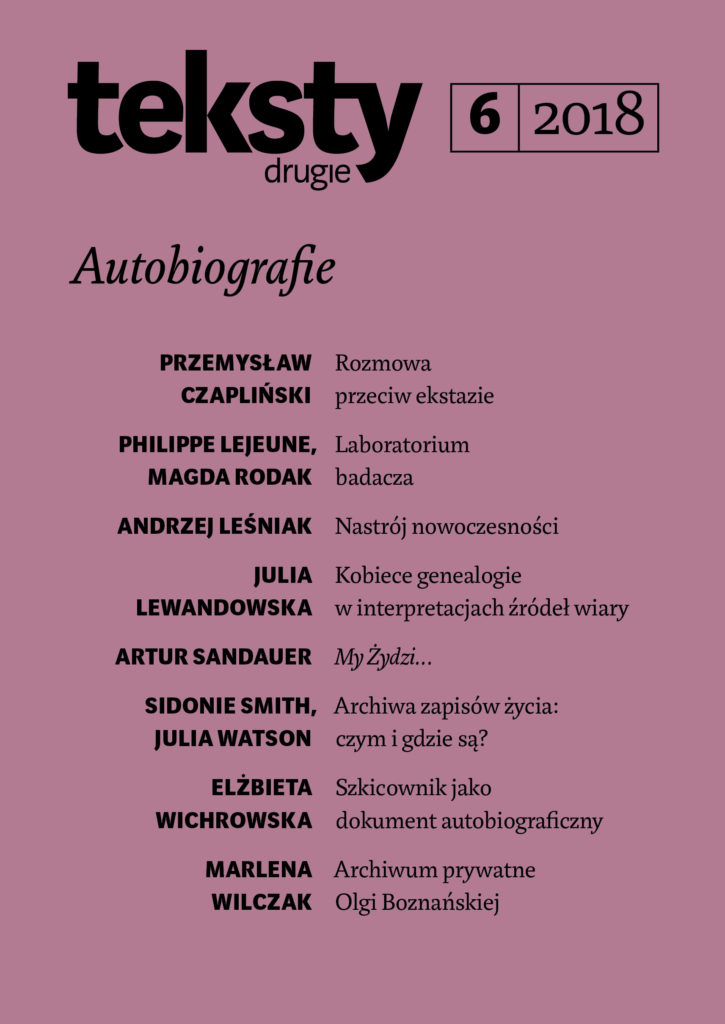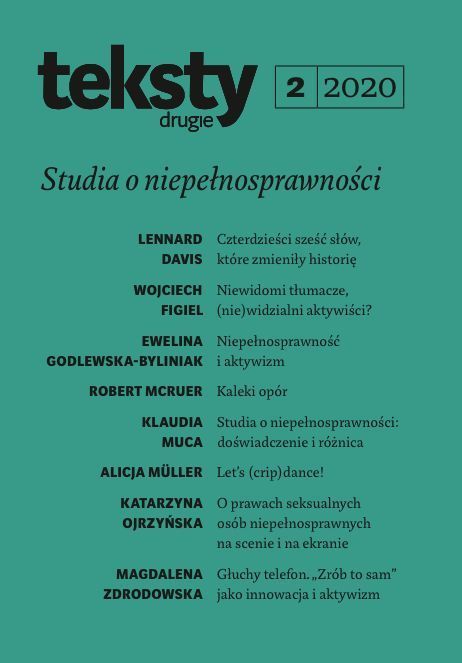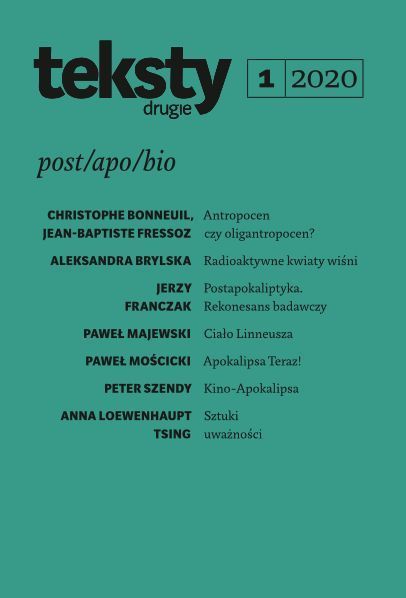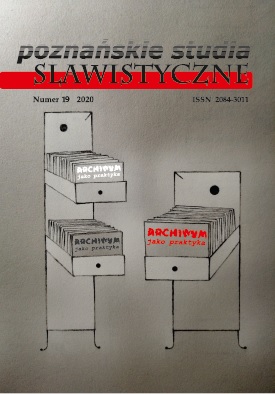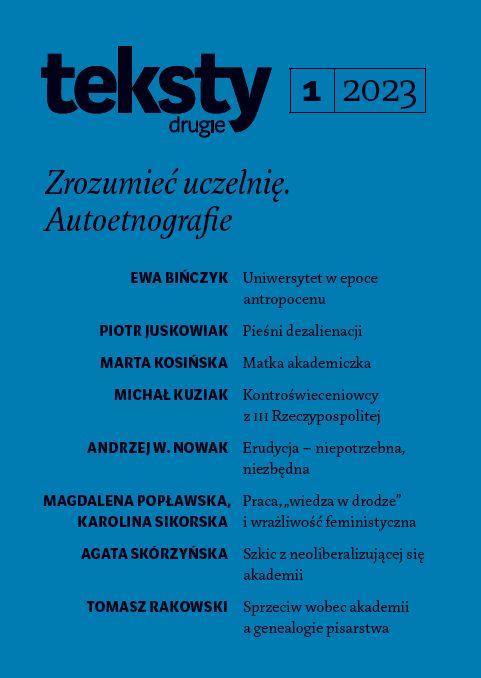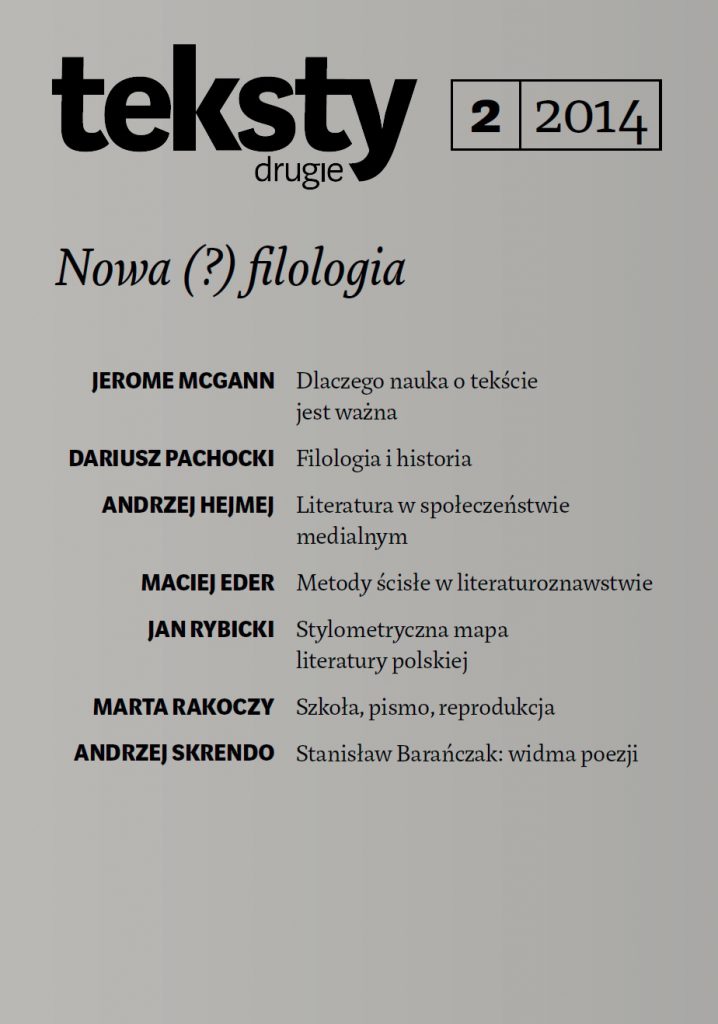
Electronic media in the editor’s toolbox – an attempt at theoretical reconnaissance
Narzędzia mediów elektronicznych w warsztacie edytora – próba teoretycznego rozpoznania
The article deals with the question of the advantages of introducing editorial practices into the field of digital humanities. The author defines phenomena related to a redefinition of (Anglo-American) editorial thought and points to the results of introducing online academic editions: new type of the reader, change of the editor’s function and new paths in literary studies that open up for the participants of digital culture. The problems of the traditional editor are discussed on the basis of the case study of Wacław Berent’s work. The methodological background for the article is provided by J. McGann, D. F. McKenzie, H. W. Gabler, as well as Polish scholars: M. Prussak, A. Karpiński i W. Bolecki.
More...
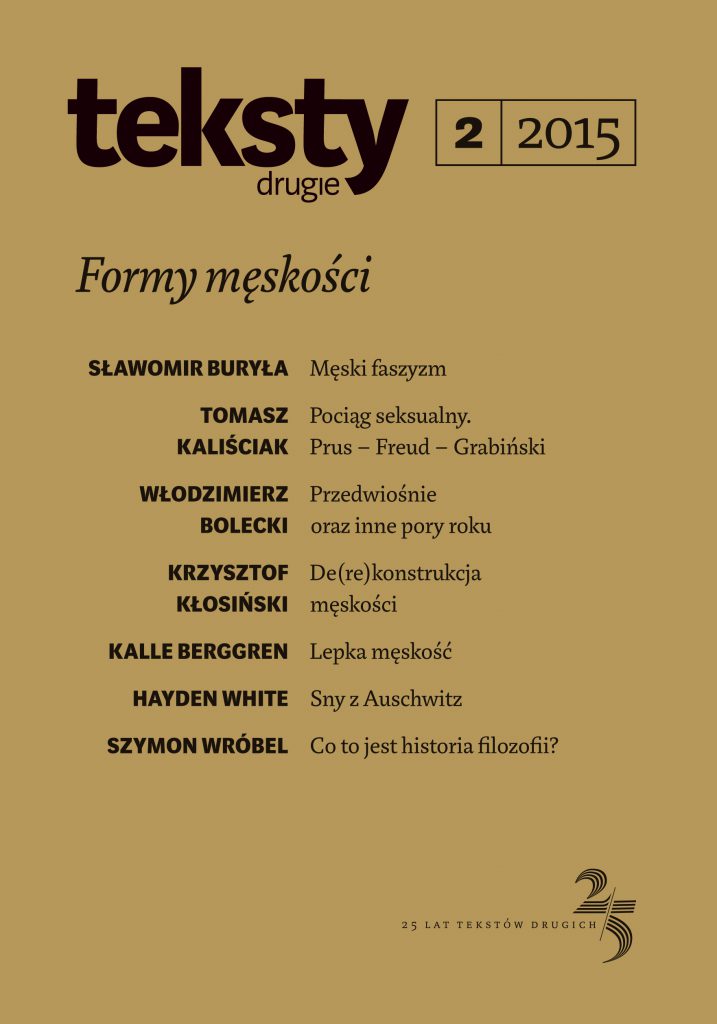
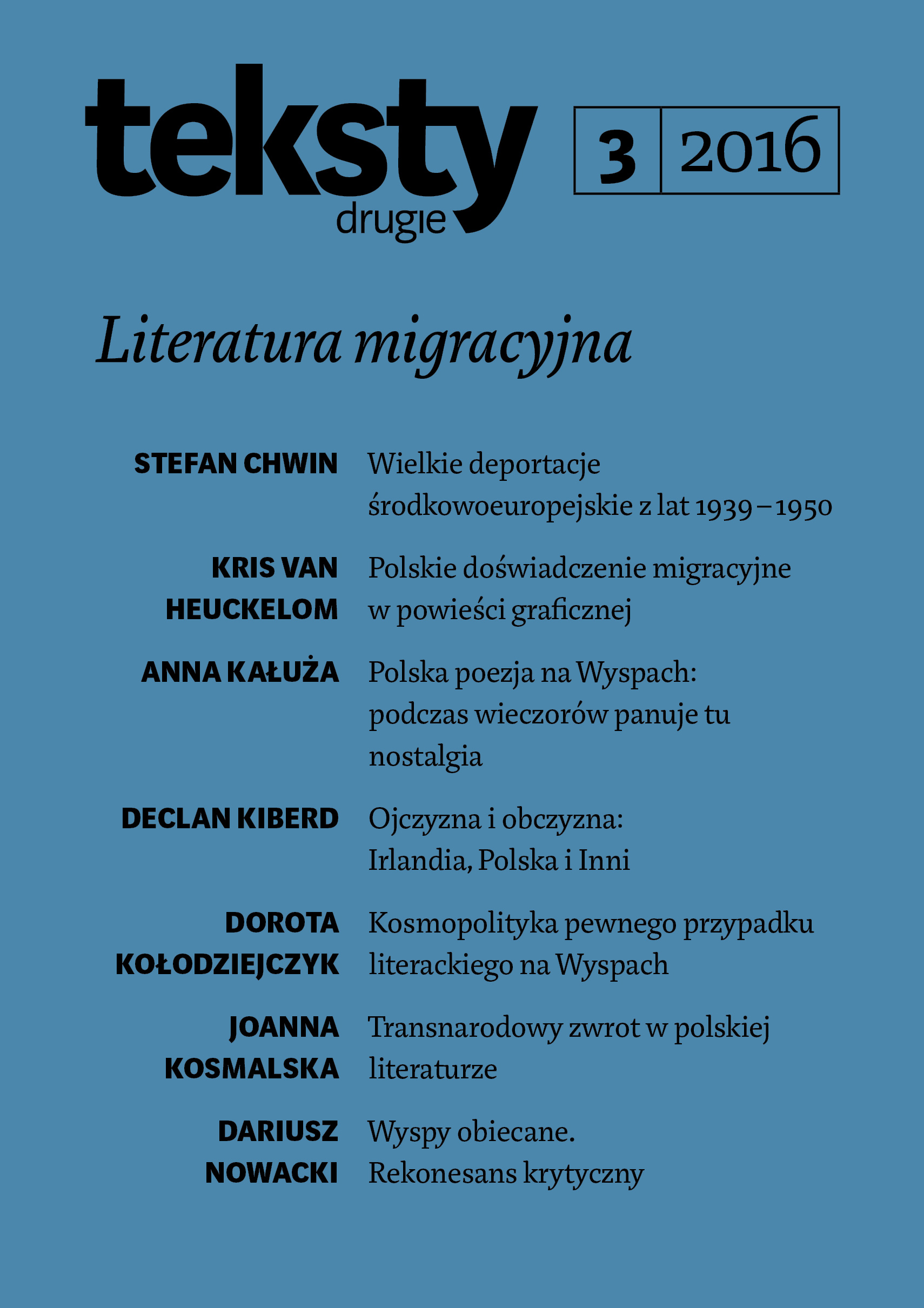
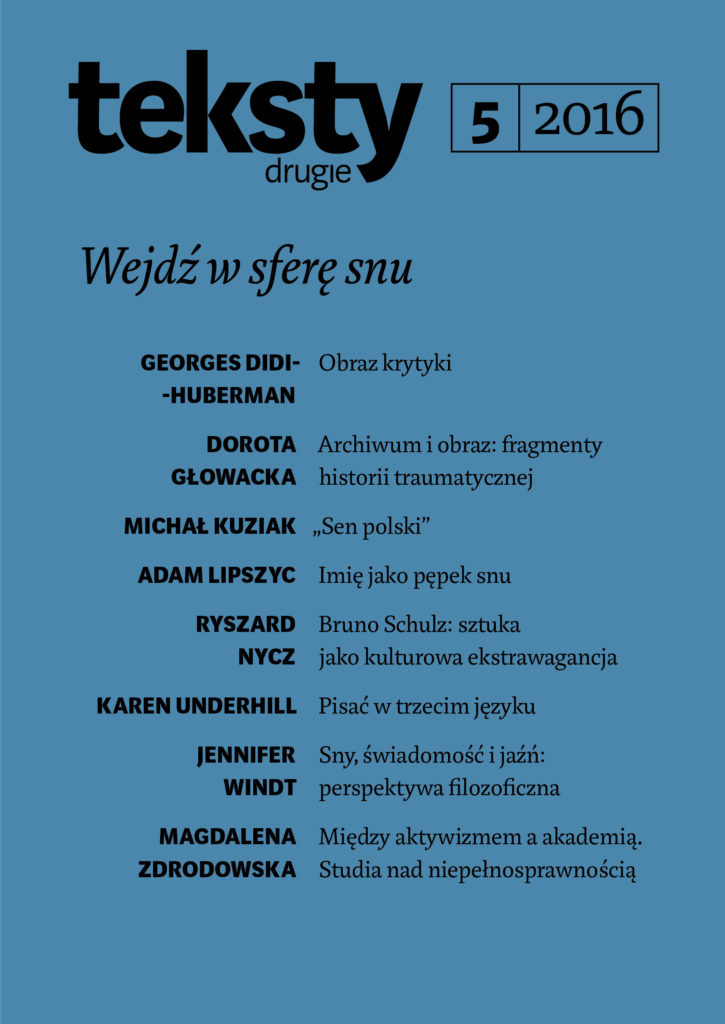
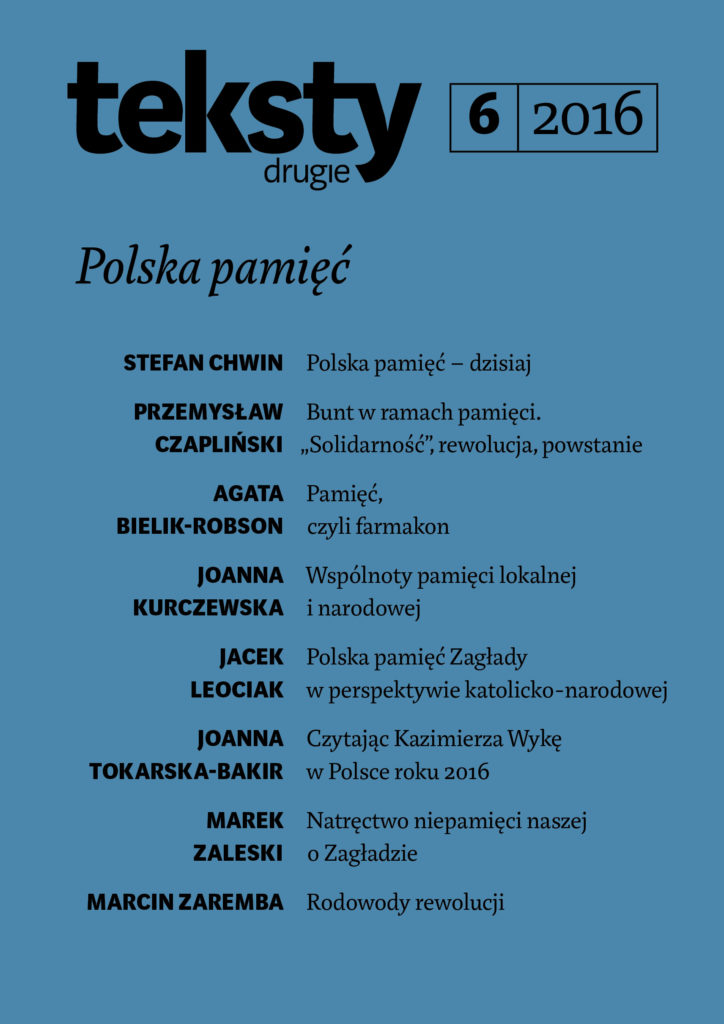
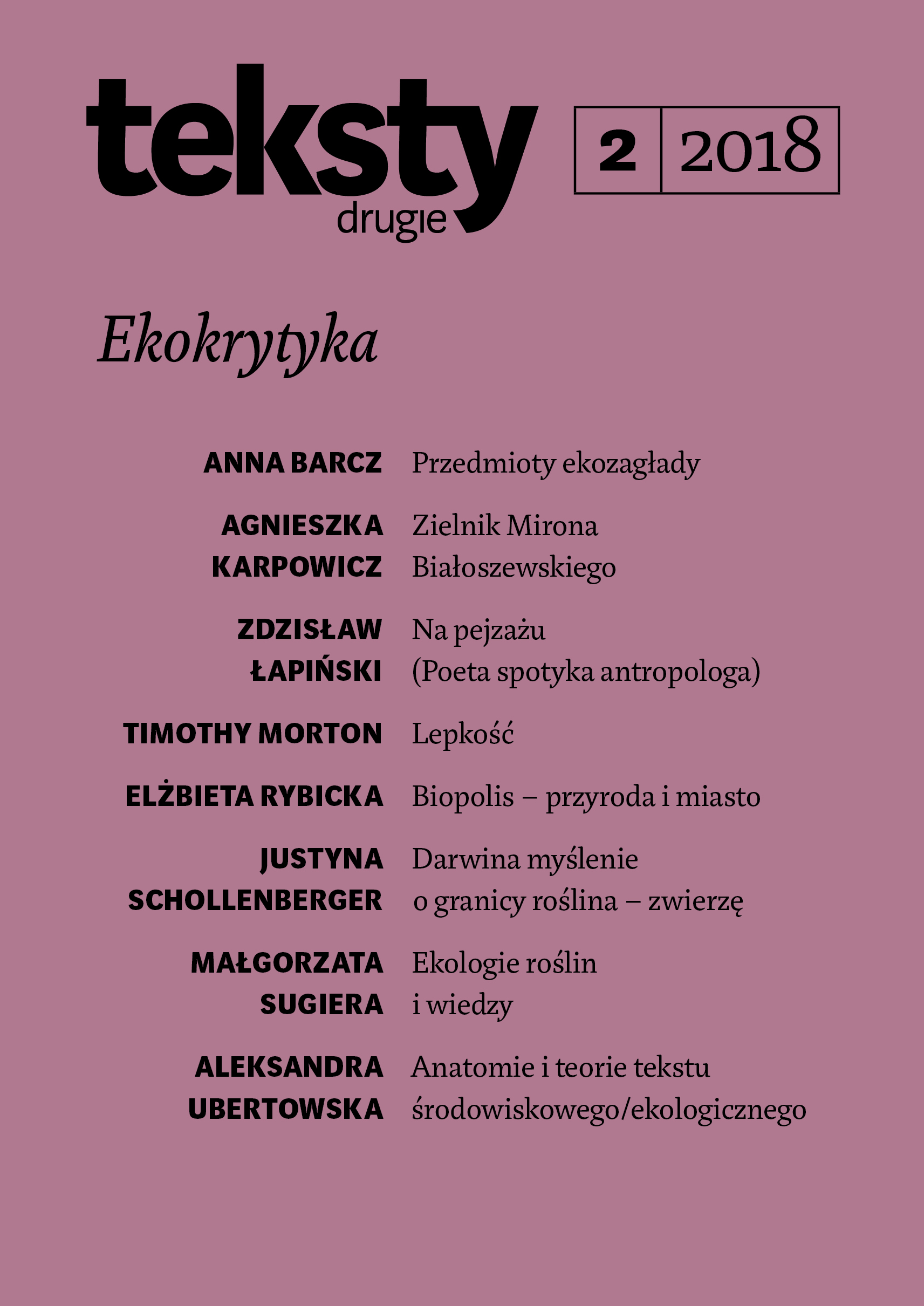
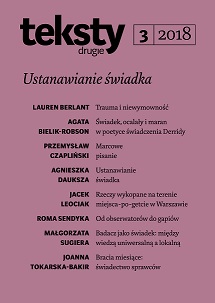
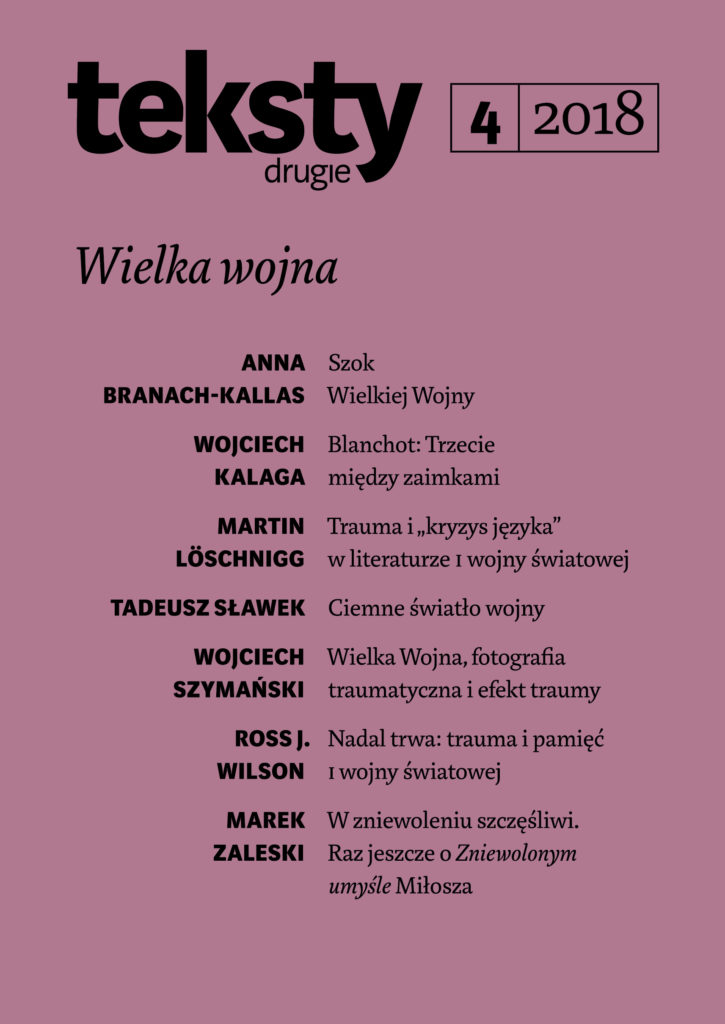
![Postępek prawa czartowskiego [The Trial of the Devil’s Law] as a Compilation of Different Genres](/api/image/getissuecoverimage?id=picture_2019_49739.jpg)
